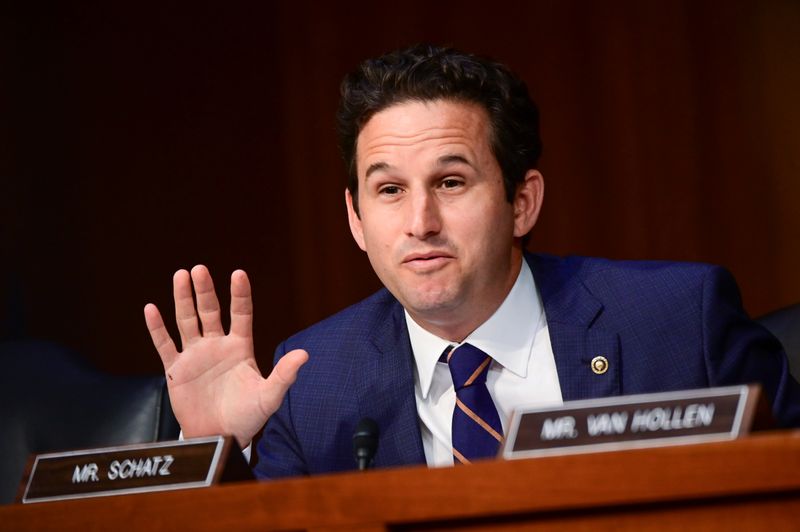
FILE PHOTO: Senator Brian Schatz (D-HI) on Capitol Hill in Washington, U.S., July 16, 2019. REUTERS/Erin Scott
October 9, 2020
By Ross Kerber and Matthew Green
BOSTON/LONDON (Reuters) – Five Democratic U.S. senators on Thursday asked BlackRock Inc <BLK.N> to justify why it rarely supported shareholder resolutions tied to climate change issues despite its increased focus on the environment this year.
The proxy voting record of the top asset manager is “troubling and inconsistent,” according to a letter sent to Reuters by the office of U.S. Senator Brian Schatz of Hawaii and signed by four others.
In a statement sent by a spokesman, BlackRock said its work on behalf of clients includes both voting and engagement, or talks with corporate managers. It cited certain negative proxy votes cast this year and noted the company now more often publishes details about votes.
“We are currently reviewing our engagement priorities and voting guidelines,” BlackRock said.
BlackRock CEO Larry Fink in January had vowed to press companies to do more to combat climate change, underscoring the shifting moods of clients and reflecting new money pouring into sustainable investing strategies.
But a pair of recent studies found that BlackRock supported climate-related proxy resolutions only around 10% of the time this year, in line with its past record. Other companies took a more aggressive tack this year, notably the asset-management arm of JPMorgan Chase & Co.<JPM.N>
Schatz’s letter cited one of those studies and noted how in several cases BlackRock’s support for management was decisive. He also wrote that BlackRock backed nearly all directors at oil, gas and utility companies.
Earlier on Thursday, speaking at an online news conference about efforts to limit climate change, BlackRock Vice Chairman Philipp Hildebrand said the company had appointed new leaders to its stewardship team.
“As a result of our commitment and these changes that were implemented during this transition year, you should certainly expect that our voting engagement outputs in 2021 around climate will look materially different from the past year,” Hildebrand said.
(Reporting by Ross Kerber in Boston and by Matthew Green in London; editing by Diane Craft)

